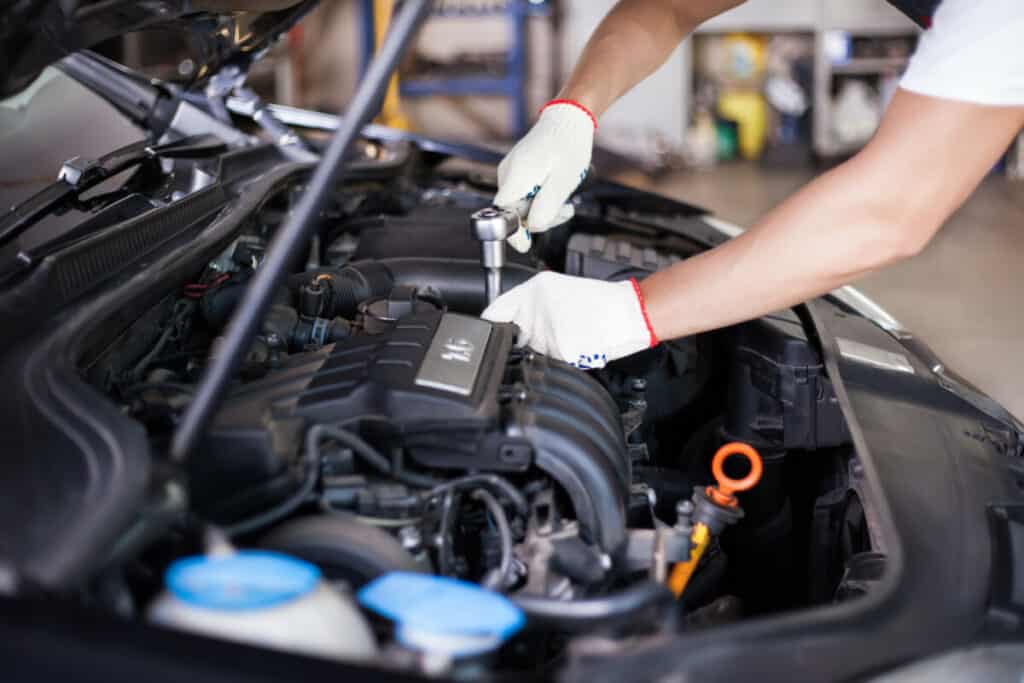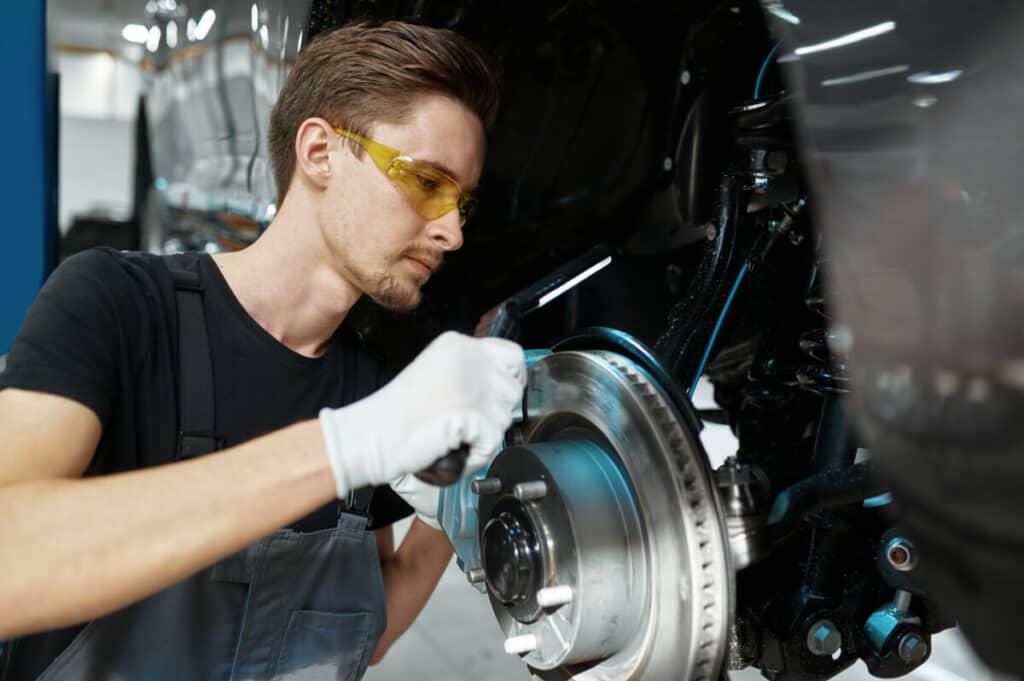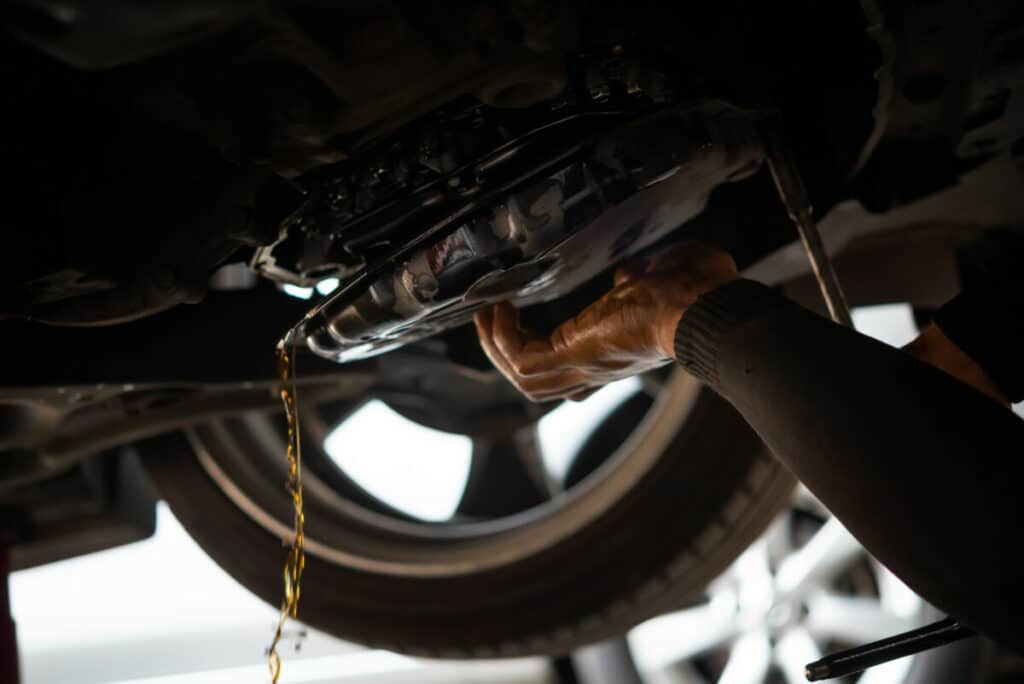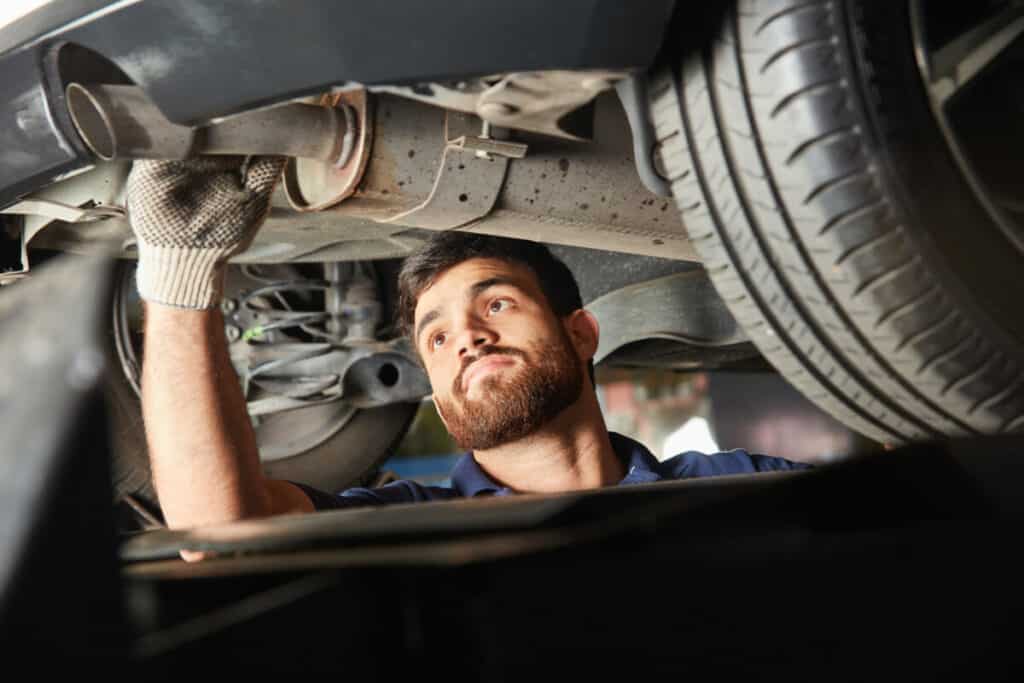Jeep Grand Cherokee Humming Noise When Accelerating (Solutions!)
Jeep Grand Cherokee’s are beautiful vehicles that are one of Jeep’s most popular cars next to the Rubicon. Although this car is very popular, it can have its fair share of problems just like all other vehicles.
Humming noises from a Jeep Grand Cherokee accelerating is due to the bearings wearing out, the differential having problems, or due to tire pressure issues. Other issues may include misalignment, transmission fluid being low, or transmission gears wearing down.

This is actually a common problem in Jeep Grand Cherokees as well as other vehicles produced by the company. The following are details on what may be causing that humming noise when accelerating and how you can potentially fix the issue.
Tires
Tires have a lot to do with how a vehicle performs and can affect acceleration. Tires are an important part of the vehicle that should be checked regularly. Tires should also be replaced every 25,000 to 80,000 miles depending on what brand of tire you have. If the tires do not surpass that amount of mileage, it is recommended that they be replaced every six years.
If the tires on the vehicle are worn, this can cause acceleration issues as the tires will not be able to grip the gravel as easily. To check to see if the tires are worn, park the vehicle in and inspect the tread on the tires. The best way to do a tread check, if you do not have a depth gauge, is to place a penny in between the tread and if you can fully see Lincoln’s head, it’s time for new tires.
With this being said, you may not have defective tires at all. Large tires with wide tread blocks can naturally make a humming noise. This just means that the tires gripping the asphalt are causing a certain vibration which will make the humming noise. This is most common with off-roading tires which are common on many types of Jeeps.

Alignment
It’s natural for a vehicle to become misaligned if it has been driven rough or has been through multiple seasons without it getting checked. Alignment is probably one of the most common issues when it comes to Jeeps in general.
If the alignment is not fixed within a few weeks of it going out and the vehicle is driven on a daily basis, this can cause uneven wear in the tires which will make that humming noise when accelerating, especially at speeds over 50 mph.
The best way to know if the vehicle’s alignment is out is by parking the vehicle and checking all four tires as suggested above to see if any of them are wearing more than others.
The other way to check alignment is to go to a deserted flat parking lot and drive the vehicle at a low speed and slightly let go of the wheel and see where the vehicle naturally goes.
If the wheel of the vehicle is straight but the vehicle goes to the right or the left, that means that your alignment is out and the vehicle will need to be realigned.
Transmission Fluid
Transmission fluid is one of the few things that is so easy to fix and can potentially fix the humming noise when accelerating. Transmission fluid can sometimes be the cause of strange sounds if it is not filled to the proper amount of transmission fluid.
To fix this, find the location of the transmission fluid tank under the hood (the manual can be helpful when trying to find this) put in a dipstick and if it’s below the point it’s supposed to be, refill to the proper amount.
The overall transmission could also have something wrong with it, but this will usually be followed by more than just a humming noise.
If the vehicle’s transmission is having issues there can be a humming noise followed by a clanking sound, bad shifting, and plenty of other problems. If it is believed that there are other transmission issues with the vehicle, take it to a trusted mechanic to run some diagnostics.

Gears
This one may seem kind of vague because there are so many gears in a vehicle. Any of the gears wearing or becoming loose can cause humming noises that you may only hear when accelerating. The differential or transmission gears can sometimes cause a humming noise when they are worn.
If it is the transmission gears that are wearing out the acceleration of the vehicle will cause the old gears to make a humming sound as they grind against one another.
There is an easy way to tell this is the case because you will usually be able to feel the transmission slipping or, in other words, struggling to shift. This is not something that is easy to figure out on your own, so take the vehicle to a shop to get diagnostics done.
The other thing that could cause humming when accelerating is when the gears within the differential begin to wear.
Differential gears have to be threaded in such a specific way that they can easily wear and cause damage to the threading. This is another thing that may be very hard to pick out, so you’ll want to take the vehicle to the shop to get diagnostics done.
Wheel Bearing
A worn wheel bearing can have multiple different sounds to it such as humming or knocking. This sound will most likely be heard from the front on the side where the bearing is worn.
Another way to know that it is a worn wheel bearing is the steering wheel can vibrate or the entire vehicle can vibrate. The more you accelerate, the more prominent the humming noise will become.
It’s not uncommon for wheel bearings to go out on Jeeps, especially if the Jeep is taken on uneven roads. This is an easy problem to fix but will need to be done by a lessened mechanic, so be sure to find a mechanic you trust.

Know the Vehicle
When trying to diagnose an issue in the vehicle yourself, you’ll want to know your vehicle and be hyperaware of how it typically sounds and drives. The best way to know of a problem is by having previous knowledge of how your vehicle drives smoothly on the road, how it shifts into gears, how it doesn’t pull to either direction, and how quiet it is inside the cabin.
Even if there is nothing wrong with the vehicle to your knowledge, occasionally turn down the radio and listen to your vehicle to see if there is anything that may alarm you. When taking the vehicle to get an oil change at the suggested mileage or at the six-month mark, ask to have a diagnostic test done on the vehicle to make sure nothing else needs to be done.
